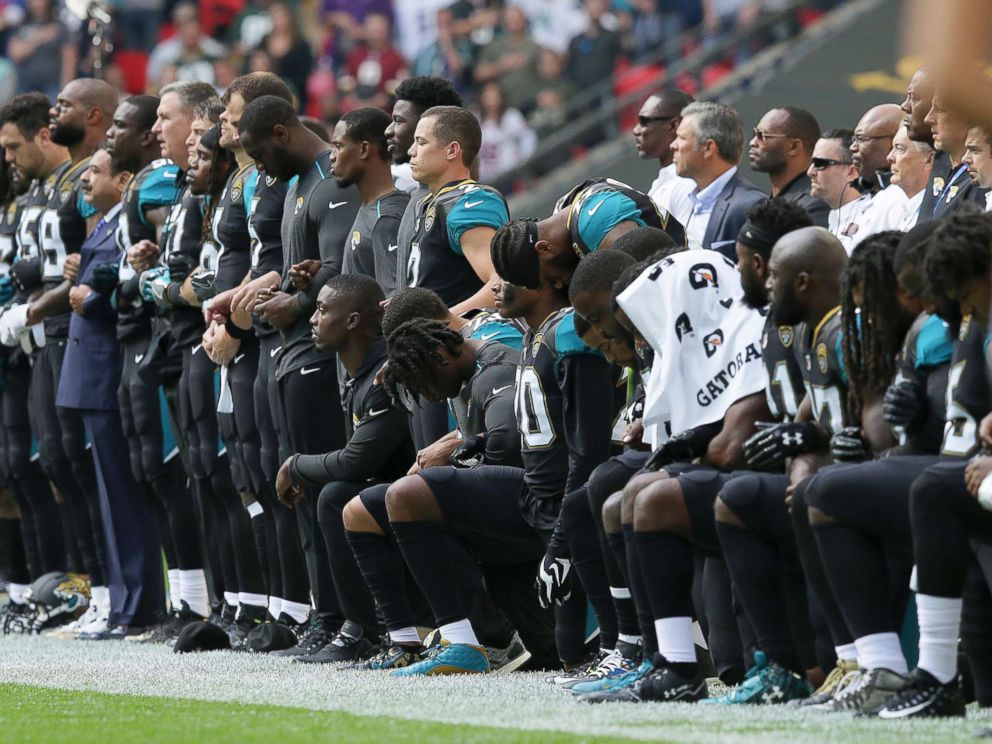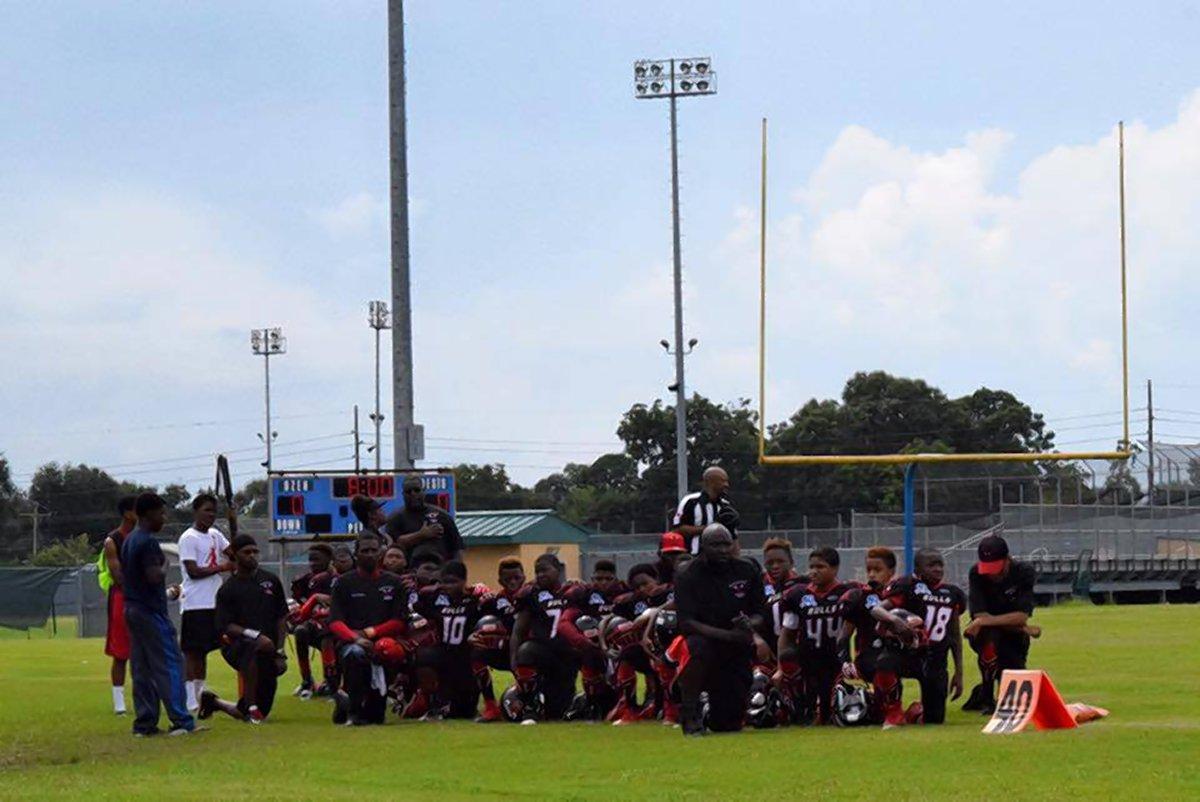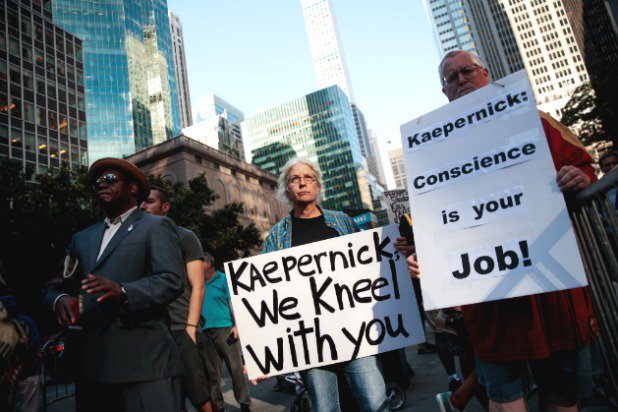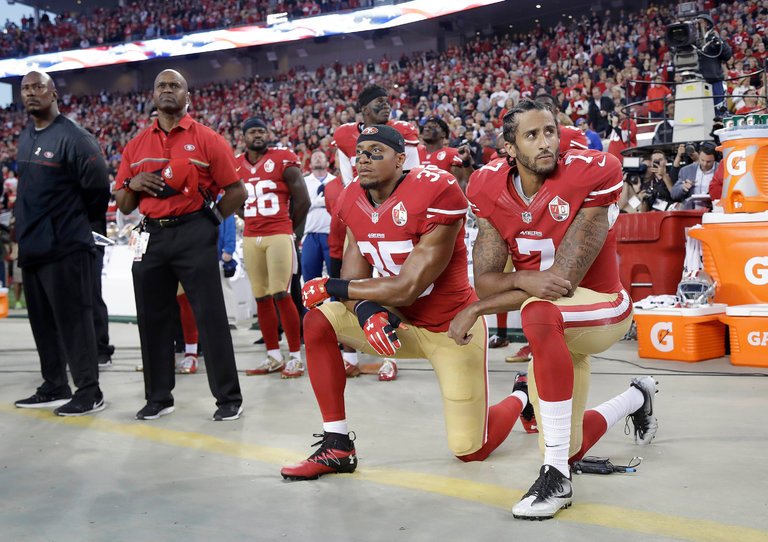There’s a lot of things that need to change. One specifically? Police brutality.
– Colin Kaepernick
Born to a white mother and black father and raised by white adoptive parents, Colin Kaepernick was the quarterback for the San Francisco 49ers. In the August of 2016, Kaepernick refused to stand during the national anthem at the start of the games. This was a public protest against the police brutality and racial discrimination faced by black Americans all over America. An illustrious career, lost, just for exercising his First Amendment Rights.
The Precursor:

On Sunday 22nd September, two dozen players from the Baltimore Ravens and Jacksonville Jaguars went down on bended knee as the US national anthem was played making the world sit up and take heed of crucial issues — racial inequality, social injustice, systemic oppression, police brutality, all the things Kaepernick initially took a stand against. And as other NFL teams such as the Steelers, Titans and Seahawks as well as celebrities of the likes of Ellen DeGeneres and Stevie Wonder chip in their support, it has transformed into a movement of a higher magnitude also being termed as the TAKE THE KNEE movement.
What Colin Kaepernick was really thriving on by refusing to stand during the National Anthem, was simply, to bring attention to all the causes he was fighting for. The Black Lives matter movement and other such groups do their thing, but they didn’t cause quite the same commotion this form of silent protestation did.
Backlash:

A gesture became a movement. After President Donald Trump called for those who kneeled to be sacked by the NFL, a 97-year-old US Second World War veteran John Middlemas, who served in the US Navy for 21 years as a submariner, had publicly ‘taken the knee’ in support of those NFL players protesting during the US national anthem and posted a photo of the same on his grandson’s Twitter saying “those kids have every right to protest”. The hashtag #TakeTheKnee trended up the charts, thanks to the celebrity twitter handles. Presently, several college going athletes have shown their solidarity with the movement only to suffer a similar fate like that faced by Kaepernick. The Beaumont Bulls from Texas, along with the support of their parents and school coach decided to carry out a similar protest before their game. What followed was a volley of hate, death threats and painful social media backlash. The coach resigned, the players went undrafted and the only other part of society capable of speaking out against the injustice and hate faced by the African-American society was silenced.

Keeping aside all sorts of bias and prejudice and reviewing the situation, players who protest against social injustice and take up such causes aren’t disrespecting the flag or the national anthem. What they’re doing instead, is bringing to light outrageous undemocratic acts which the majority persist in condoning and ignoring. Colin Kaepernick didn’t wake up one morning and decide to take up the cause of violence and oppression faced by the Black community by sitting or kneeling during the anthem, he’s been silently doing it since several months. Kaepernick hadn’t tweeted much himself but he constantly re-tweeted various posts regarding social inequality and racism. This wasn’t a footballer trying to grab attention, wasn’t another celebrity trying to chime in on trending topics to appear intelligent or caring; this is a conscious American concerned with the well-being of his fellow citizens.
This is a protest designed to start a conversation. At the end of the day, the biggest winner was Colin Kaepernick, a player who didn’t need to be in the field to have his day in the sun.

